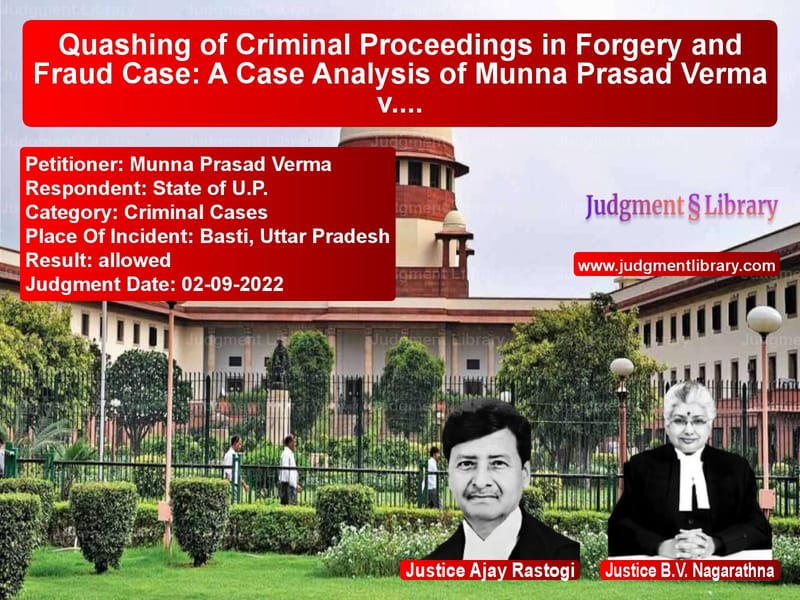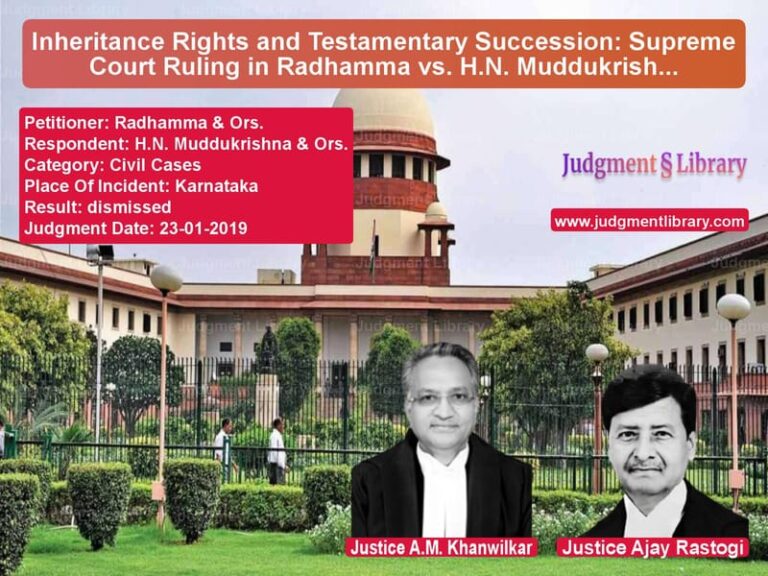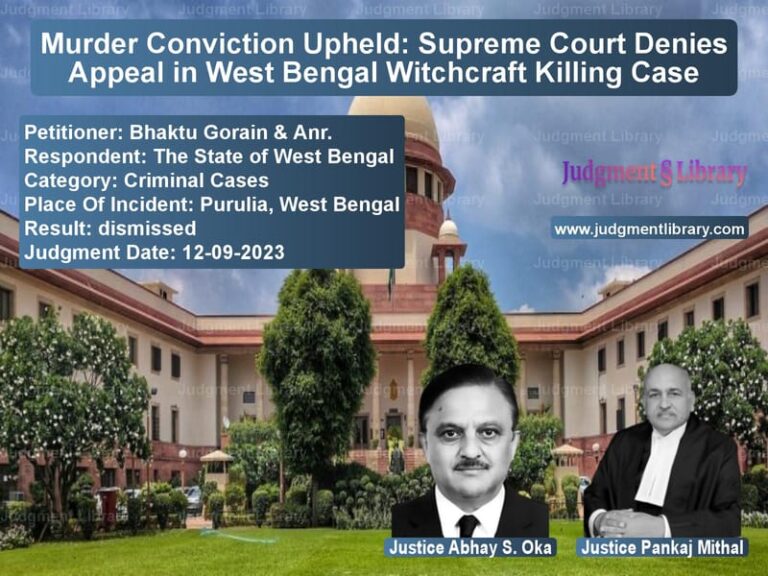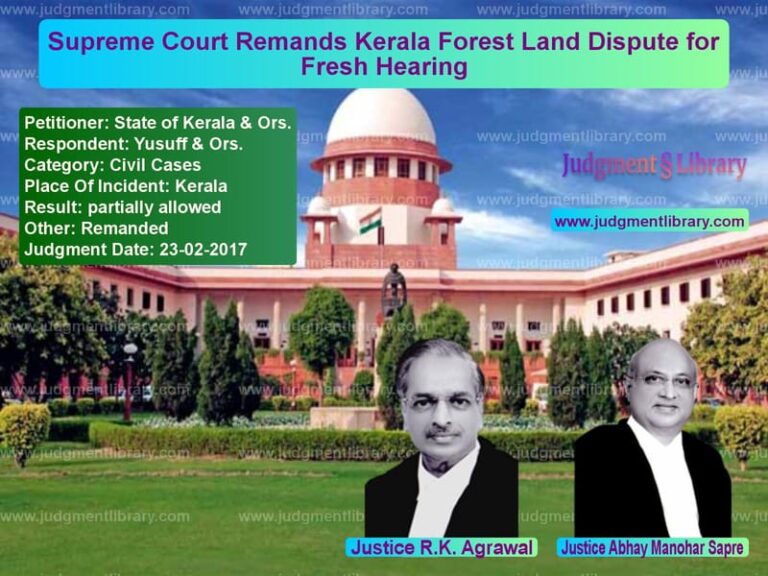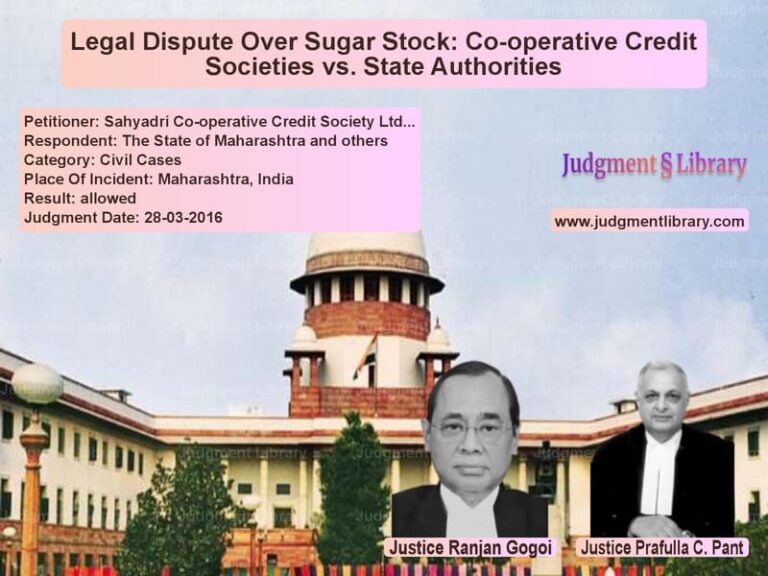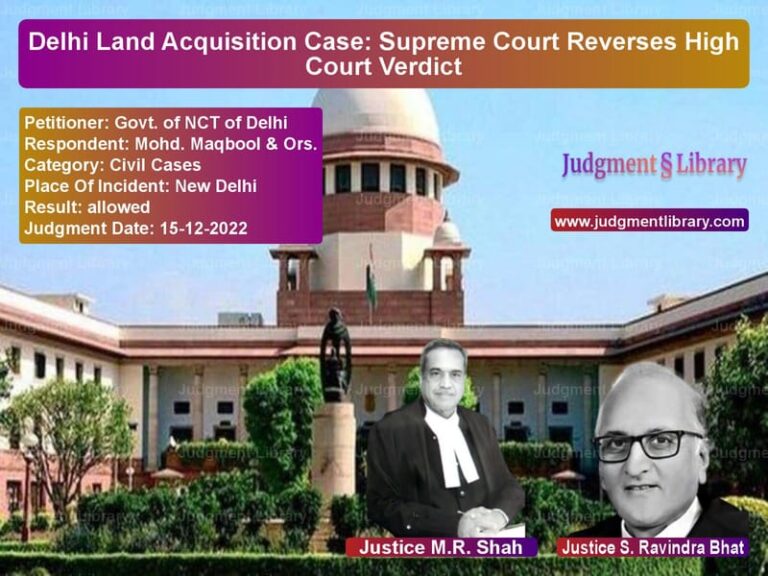Quashing of Criminal Proceedings in Forgery and Fraud Case: A Case Analysis of Munna Prasad Verma v. State of U.P.
This case involves an appeal filed by Munna Prasad Verma, who, along with other members of a Selection Committee, was implicated in a forgery and fraud case related to the compassionate appointment of Brijendra Nath Mishra. The appellant was accused of facilitating the appointment of Brijendra Nath Mishra, who allegedly submitted a forged B.Ed degree to secure a compassionate appointment in violation of the law. The charges under Sections 419, 420, 467, 468, 471, and 120-B of the Indian Penal Code (IPC) were filed against the appellant and others. The appellant sought to quash the criminal proceedings initiated against him, and the case was brought before the Supreme Court after the dismissal of the petition under Section 482 of the Code of Criminal Procedure (CrPC) by the High Court of Allahabad.
Petitioner’s Argument
The appellant’s counsel, Mr. Mishra, argued that there was no prima facie evidence to implicate the appellant in the commission of the alleged crime. He contended that the appellant, as a member of the Selection Committee, had merely relied on the documents presented by the applicant, Brijendra Nath Mishra, under the assumption that they were genuine. According to the appellant, there was no direct or indirect involvement in the creation or fabrication of the forged B.Ed degree. The appellant’s actions were based on the assumption that the documents provided by the candidate were valid. He further emphasized that being a member of the Selection Committee did not automatically implicate the appellant in the forgery or fraud committed by the candidate.
Read also: https://judgmentlibrary.com/xyz-v-abhisheik-anr-dispute-on-juvenility-and-offence-determination/
The appellant’s counsel also argued that the learned Magistrate’s decision to issue summons against the appellant was an abuse of the process of law. The appellant had no reason to doubt the authenticity of the documents submitted by Brijendra Nath Mishra, and his role was limited to recommending the appointment based on the available records. The counsel submitted that the proceedings should be quashed in light of the lack of evidence connecting the appellant to the alleged crime.
Respondent’s Argument
The respondent, represented by the State of Uttar Pradesh, argued that the appellant and other members of the Selection Committee were responsible for verifying the documents of the candidates. The respondent contended that despite the allegations of forgery, the appellant and his colleagues had failed to properly scrutinize the authenticity of the B.Ed degree submitted by Brijendra Nath Mishra. The State further argued that the involvement of the Selection Committee members, who recommended the appointment based on fraudulent documents, made them liable for the charges under the IPC, including forgery, cheating, and conspiracy.
The respondent also pointed out that the criminal proceedings were initiated based on a complaint by Brijendra Nath Mishra, who alleged that his appointment was facilitated through forged documents. The respondent claimed that the actions of the appellant and the other members of the Selection Committee warranted legal scrutiny, as they were part of the decision-making process that led to the illegal appointment of the candidate.
Court’s Analysis and Ruling
The Supreme Court, in its analysis, emphasized the importance of carefully examining the evidence in criminal cases, particularly when the allegations involve serious charges such as forgery, fraud, and conspiracy. The Court noted that the appellant, as a member of the Selection Committee, had a duty to ensure that the documents presented for the appointment were authentic. However, the Court recognized that the appellant had acted based on the assumption that the documents were genuine and had no reason to doubt their authenticity.
The Court also highlighted that the mere reliance on the documents submitted by the candidate did not automatically implicate the appellant in the commission of the crime. The appellant’s actions were limited to reviewing and recommending the appointment based on the information available at the time. The Court found that there was no direct evidence linking the appellant to the creation or fabrication of the forged B.Ed degree, and his role in the Selection Committee was not sufficient to hold him criminally liable for the actions of the candidate.
In light of these findings, the Supreme Court concluded that the criminal proceedings initiated against the appellant were an abuse of the process of law. The Court held that there was no prima facie case against the appellant and that the continuation of the criminal proceedings would result in unnecessary harassment. Therefore, the Court quashed the charges against the appellant and set aside the proceedings initiated against him.
Conclusion
This case highlights the importance of ensuring that criminal proceedings are based on solid evidence and that individuals are not wrongfully implicated based on their roles in organizational processes. The Court’s decision to quash the criminal proceedings underscores the principle that an individual should not be held criminally liable for actions based on mere procedural recommendations unless there is clear evidence of direct involvement in illegal activities. The judgment also serves as a reminder of the need for proper verification and scrutiny of documents in official processes, especially when appointments are made based on such records.
Petitioner Name: Munna Prasad Verma.Respondent Name: State of U.P..Judgment By: Justice Ajay Rastogi, Justice B.V. Nagarathna.Place Of Incident: Basti, Uttar Pradesh.Judgment Date: 02-09-2022.
Don’t miss out on the full details! Download the complete judgment in PDF format below and gain valuable insights instantly!
Download Judgment: munna-prasad-verma-vs-state-of-u.p.-supreme-court-of-india-judgment-dated-02-09-2022.pdf
Directly Download Judgment: Directly download this Judgment
See all petitions in Fraud and Forgery
See all petitions in Bail and Anticipatory Bail
See all petitions in Money Laundering Cases
See all petitions in Judgment by Ajay Rastogi
See all petitions in Judgment by B.V. Nagarathna
See all petitions in allowed
See all petitions in supreme court of India judgments September 2022
See all petitions in 2022 judgments
See all posts in Criminal Cases Category
See all allowed petitions in Criminal Cases Category
See all Dismissed petitions in Criminal Cases Category
See all partially allowed petitions in Criminal Cases Category

